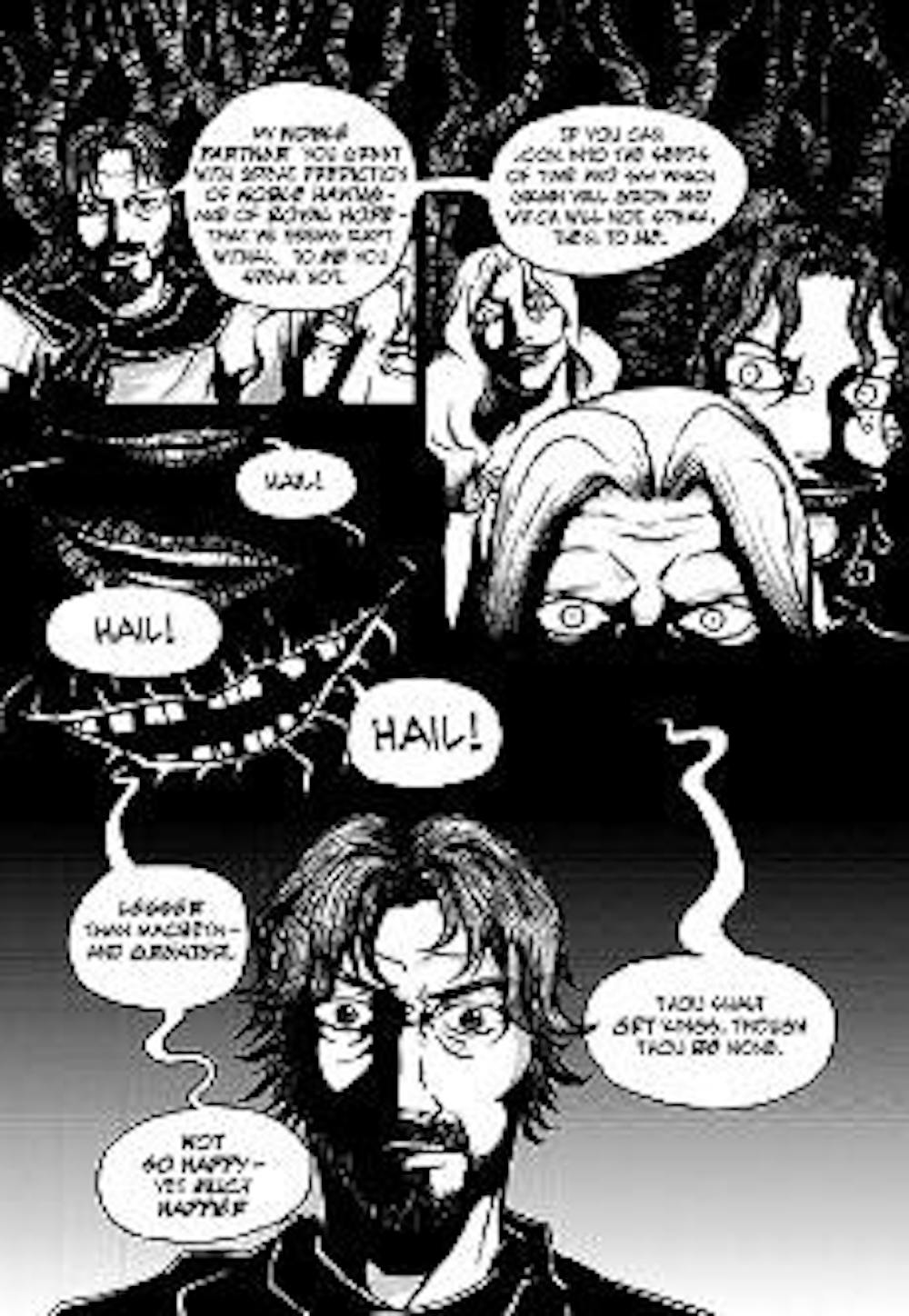The words are familiar: Everyone's heard Romeo seduce Juliet on her balcony or Hamlet consider the merits of suicide. The images are familiar, too: Extreme closeups of tears falling down cheeks, shadows taking up half a page and highly stylized features that can only mean Japanese comic books. However, the combination of the two is unfamiliar to most.
Adam Sexton, writer of a new series of manga adaptations of Shakespeare plays, and Yali Lin, artist of the "Romeo and Juliet" manga, gave a lecture at the Folger Shakespeare Library Monday, showing the adaptation process and explaining the merits of an old text in a new medium. Manga, a form of Japanese comic book, is better known for action-adventure or fantasy stories, but also lends itself to many disparate themes and genres.
The combination is certainly odd. The language of manga is often simple, and most of the genre is aimed at an early teenage audience, hardly typical Shakespeare readers. The images of Shakespearean plays are those of live human actors on a stage, not the stylized, distorted characters of typical manga. However, it works surprisingly well, as perusing a page of "Romeo and Juliet" will show. An actor can only do so much, but capital letters and a scream bubble can do so much more.
While typical manga readers may be turned off by the idea of reading an entire Elizabethan play, Sexton and Lin have attempted to turn the works into something congruent with traditional manga style. Significant portions of the texts of the plays have been removed, and longer monologues have been broken up into smaller blocks of text to fit into manga layout. So far, Sexton has tackled "Romeo and Juliet," "Hamlet," "Macbeth" and "Julius Caesar."
However, Sexton anticipates that fans of Shakespeare will be pleased with the adaptation: He notes that every word in each of the four books was originally written by Shakespeare. Also, unlike other manga Shakespeare adaptations, which turn Romeo into a rock star and the state of Denmark into a climate change apocalypse cyber-punk war zone, Sexton's versions keep the original settings and costumes. Lin said her influences came largely from period costume pieces and pictures of Verona, in addition to the 1968 Zeffirelli movie.
Sexton also adapted the traditional manga style. Instead of reading from right to left, like most manga books, these four read from left to right. In addition, the publishers rejected the frequent manga tradition of releasing works in a series - each play is a single book.
Sexton says he hopes his books will be used as a classroom aid, helping students with many of the problems they face with Shakespearean language. As any high school freshman knows, reading a Shakespearean play is difficult. Seeing one can be even harder. Sexton said he hopes having the text and the images available will turn many new students on to Shakespeare.
Sexton says he has no immediate plans for more Shakespearean manga. His next project is a manga adaptation of "The Scarlet Letter," followed by one of "Huckleberry Finn." Depending on the success of his currently released books, he may produce more books of popular Shakespearean plays like "Othello"





